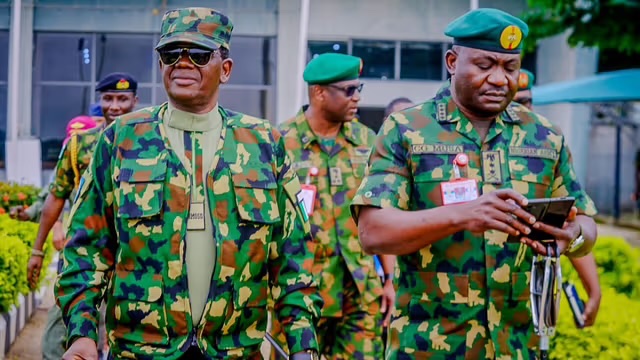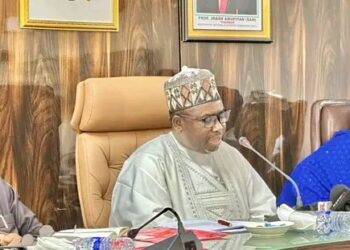The Minister of State for Defence, Dr Bello Matawalle, has said the Federal Government of Nigeria remain grateful to her fallen heroes who laid their lives to guarantee the nation’s corporate existence.
Matawalle said this while inaugurating the national planning committee for the 2025 Armed Forces Remembrance Day (AFRDC).
This is contained in a statement in Abuja, by Mr Henshaw Ogubike, Director Information and Public Relations, Ministry of Defence.
The Armed Forces Remembrance Day Celebrations is an annual event marked on Jan. 15, to commemorate the nation’s departed compatriots as well as to honour the living veterans.
It is also an opportunity for the country to acknowledge not only the Armed Forces but also all security agencies who contribute to the safety and sovereignty of the nation.
Represented by the Permanent Secretary in the ministry, Dr Ibrahim Kana, the minister urged the committee to commence preparation towards marking of the 2025 event.
He charged members to come up with laudable initiatives that would surpass the patriotism displayed by the fallen heroes.
According to him, the Federal Government remains grateful to this category of Nigerians who laid their lives to guarantee the corporate existence of this country.
“They have given their lives for the peace and security of our dear nation and are therefore worthy of being celebrated as a mark of appreciation.
“We must ensure that this event honours their work and inspires future generations to continue this noble service.”
Matawalle added that the highlights of the events would include a ministerial briefing as well as the Nigerian Legion Humanitarian Day.
He ssid other events include the Emblem Appeal Launch by the President, Juma’at Prayer, an Interdenominational Church service and the wreath laying ceremony which wouldl take place on Jan. 15, 2025.
The minister said that members of the committee were drawn from the various Government Ministries, Departments and Agencies. (MDAs)(NAN)











